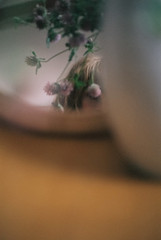Dear Malala,
I followed with passion your speech at the United Nations. How much energy, how much strenght you showed. You are a real giant in a world of drawfs and I am standing on your shoulders. Life and your experiences have made you a child first and then immediately adult but I can see your ineptitude while growing up and I am thankful to God for that. Hopefully you have not lost yet the fire and the trust in the future typical of your legal age. One time, I was like you, I thought that a pen, a book, and a teacher could be powerful weapons. But You know, dear Malala, blind trust in these simple instruments have vanished into thin air. You know Malala, I cannot deny that education is the key of progress, of emancipation and civilisation, in fact, It is not a coincidence if my beloved country lives in a deep sociocultural crisis that is killing us. My Italy is succumbing under the bullets of ignorance and not under the shoots of the spread. My dear Pink, pink because you really like this tender colour, knowledge is destroying us from the inside. I was a great eater of books in the past: when I was your age, I have bled up half of the most important books. Now, of course, I still read a lot, but I do it with such reluctance and oftentimes I prefer to go back to old stories rather than start new ones. If I had studied less, now I would be like the “pastore errante” of Leopardi. If I knew less, I could appreciate the world like only children do. My dear guide, the conquest of full intellectual maturity has destroyed my young side, it made me look at the world as a desolate land driven only by causalistic laws. If on one side education makes us free, from another it deletes the magic and puts us in front of the bitter truth where men are alone and play in a tragedy. Dear Malala, I wish and hope to be in wrong, at the end westerners have all they need and this make us weaker. Maybe I am just an actor in an era that turns to the sunset. You younger, you braver will be able to do better. I have tested with my hands the extra oomps of orientals. In India, I have seen the wellness and the extreme poverty, only in that I have found true smiles, true beauty and the hanger. A little indian without shoes and clothes still continues to dance in front of my mask of indifference. The happiness of life is in he who does not have it yet. I wish you will succed in your challenge and that you, new people, will be able to establish better connection of values with objects than we made. Assalâmu ‘aleikum ua ràhmatu-llahi ua barakàtuhu Malala. May God bless you and may your innocence never leave you.
What doest thou in heaven, O moon?
Say, silent moon, what doest thou?
Thou risest in the evening; thoughtfully
Thou wanderest o’er the plain,
Then sinkest to thy rest again.
And art thou never satisfied
With going o’er and o’er the selfsame ways?
Art never wearied? Dost thou still
Upon these valleys love to gaze?
How much thy life is like
The shepherd’s life, forlorn!
He rises in the early dawn,
He moves his flock along the plain;
The selfsame flocks, and streams, and herbs
He sees again;
Then drops to rest, the day’s work o’er;
And hopes for nothing more.
Tell me, O moon, what signifies his life
To him, thy life to thee? Say, whither tend
My weary, short-lived pilgrimage,
Thy course, that knows no end?And old man, gray, infirm,
Half-clad, and barefoot, he,
Beneath his burden bending wearily,
O’er mountain and o’er vale,
Sharp rocks, and briars, and burning sand,
In wind, and storm, alike in sultry heat
And in the winter’s cold,
His constant course doth hold;
On, on, he, panting, goes,
Nor pause, nor rest he knows;
Through rushing torrents, over watery wastes;
He falls, gets up again,
And ever more and more he hastes,
Torn, bleeding, and arrives at last
Where ends the path,
Where all his troubles end;
A vast abyss and horrible,
Where plunging headlong, he forgets them all.
Such scene of suffering, and of strife,
O moon, is this our mortal life.
In travail man is born;
His birth too oft the cause of death,
And with his earliest breath
He pain and torment feels: e’en from the first,
His parents fondly strive
To comfort him in his distress;
And if he lives and grows,
They struggle hard, as best they may,
With pleasant words and deeds to cheer him up,
And seek with kindly care,
To strengthen him his cruel lot to bear.
This is the best that they can do
For the poor child, however fond and true.
But wherefore give him life?
Why bring him up at all,
If _this_ be all?
If life is nought but pain and care,
Why, why should we the burden bear?
O spotless moon, such _is_
Our mortal life, indeed;
But thou immortal art,
Nor wilt, perhaps, unto my words give heed.Yet thou, eternal, lonely wanderer,
Who, thoughtful, lookest on this earthly scene,
Must surely understand
What all our sighs and sufferings mean;
What means this death,
This color from our cheeks that fades,
This passing from the earth, and losing sight
Of every dear, familiar scene.
Well must thou comprehend
The reason of these things; must see
The good the morning and the evening bring:
Thou knowest, thou, what love it is
That brings sweet smiles unto the face of spring;
The meaning of the Summer’s glow,
And of the Winter’s frost and snow,
And of the silent, endless flight of Time.
A thousand things to thee their secrets yield,
That from the simple shepherd are concealed.
Oft as I gaze at thee,
In silence resting o’er the desert plain,
Which in the distance borders on the sky,
Or following me, as I, by slow degrees,
My flocks before me drive;
And when I gaze upon the stars at night,
In thought I ask myself,
‘Why all these torches bright?
What mean these depths of air,
This vast, this silent sky,
This nightly solitude? And what am I?’
Thus to myself I talk; and of this grand,
Magnificent expanse,
And its untold inhabitants,
And all this mighty motion, and this stir
Of things above, and things below,
No rest that ever know,
But as they still revolve, must still return
Unto the place from which they came,–
Of this, alas, I find nor end nor aim!
But thou, immortal, surely knowest all.
_This_ I well know, and feel;
From these eternal rounds,
And from my being frail,
Others, perchance, may pleasure, profit gain;
To _me_ life is but pain.My flock, now resting there, how happy thou,
That knowest not, I think, thy misery!
O how I envy thee!
Not only that from suffering
Thou seemingly art free;
That every trouble, every loss,
Each sudden fear, thou canst so soon forget;
But more because thou sufferest
No weariness of mind.
When in the shade, upon the grass reclined,
Thou seemest happy and content,
And great part of the year by thee
In sweet release from care is spent.
But when _I_ sit upon the grass
And in the friendly shade, upon my mind
A weight I feel, a sense of weariness,
That, as I sit, doth still increase
And rob me of all rest and peace.
And yet I wish for nought,
And have, till now, no reason to complain.
What joy, how much I cannot say;
But thou _some_ pleasure dost obtain.
My joys are few enough;
But not for that do I lament.
Ah, couldst thou speak, I would inquire:
Tell me, dear flock, the reason why
Each weary breast can rest at ease,
While all things round him seem to please;
And yet, if _I_ lie down to rest,
I am by anxious thoughts oppressed?Perhaps, if I had wings
Above the clouds to fly,
And could the stars all number, one by one,
Or like the lightning leap from rock to rock,
I might be happier, my dear flock,
I might be happier, gentle moon!
Perhaps my thought still wanders from the truth,
When I at others’ fortunes look:
Perhaps in every state beneath the sun,
Or high, or low, in cradle or in stall,
The day of birth is fatal to us all.





